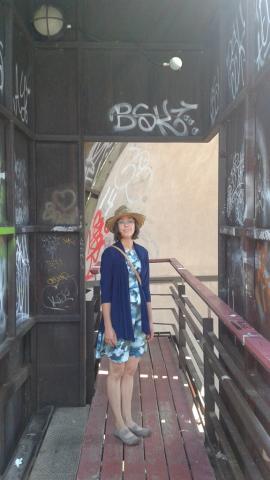My dissertation examines urban gardening and livestock raising as a form of social reproduction in deindustrial Michigan. In particular, I am interested in the ways gardeners reshape everyday urban space and the impacts this has on civic and political life.
In cities like the one I work in, there’s a growing interest in building more localized economies, as part of a response to deindustrialization. Urban gardening and livestock raising are among the craft-style economic activities that local civic and political leaders are starting to encourage, touted for the ability to use vacant land, address food insecurity, and support other ventures within the food system such as farmers’ market, incubator kitchens, and local restaurants. While most people are not gardening or raising livestock as a livelihood strategy, this kind of popular and political support does create an encouraging environment for hobbyists.
These hobbyists often use emotional or moral language to describe their motivations for gardening. They do it because it is a good thing for themselves, their household, their communities, or their environment. In my work I analyze gardening and livestock raising as a form of social reproduction, a practice people use to benefit their households, preserve their cultural heritage, or make their local ecosystems more sustainable. In that sense, gardening is about creating the everyday lived environments, both social and spatial, that people want for themselves and others.
These efforts to shape the spaces in which gardeners and their neighbors live their daily lives have several impacts on civic and political life in the city. First, there is the direct impact urban gardening and livestock raising have on land use and economic development policy. Some people seek policies, like allowing beekeeping, that will encourage these practices; others are concerned about how things like urban farms will change the landscape and lobby for stricter zoning rules. The second impact follows from the first–a larger conversation about urban aesthetics. People are having public conversations about what they think a city should look like, which reflects things like their class positions, their version of the city’s history, and their ideas about what an ideal city is. Finally, urban gardens and other alternative food projects, such as farmers’ markets, food forests, and collective beekeeping, provide a basis, often in a very physical, material sense, for people to organize around. Participating in a community garden or volunteering for a gardening non-profit or attending a permaculture meet-up group are all ways people find to identify themselves as part of a broader group, develop specific policy interests, and create the kinds of social and spatial environments in which they want to live.

